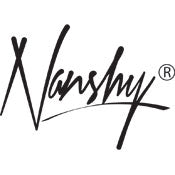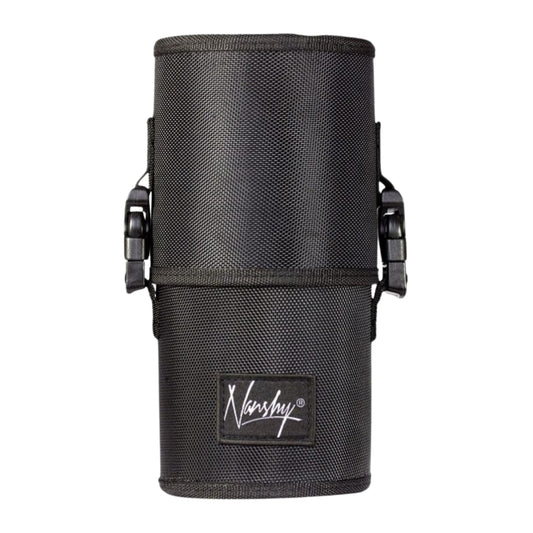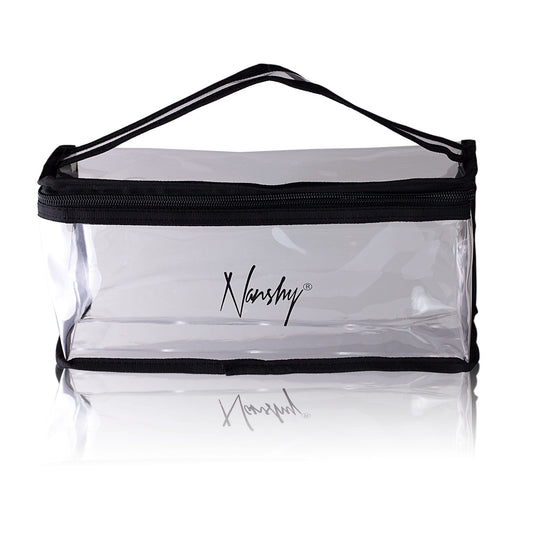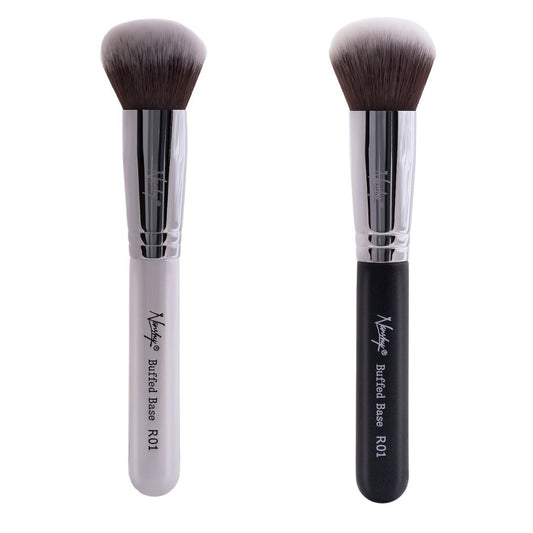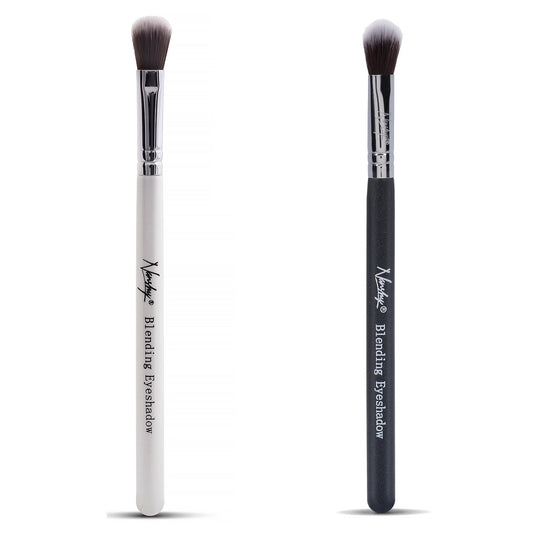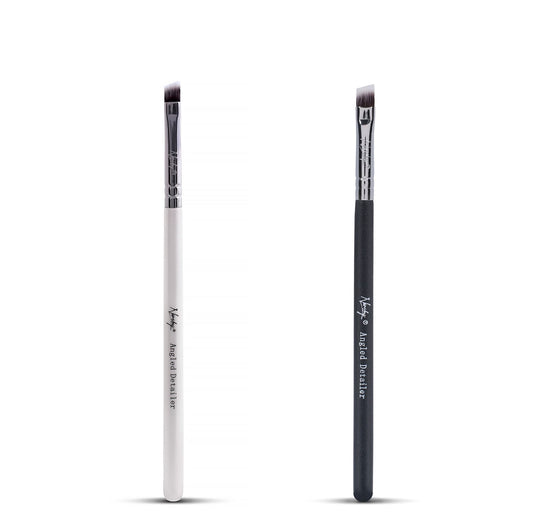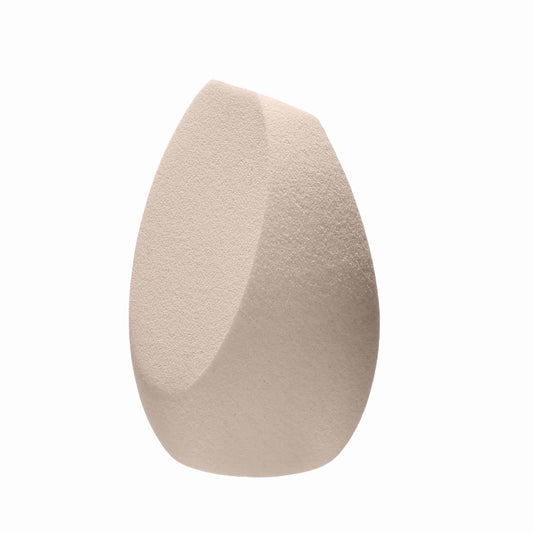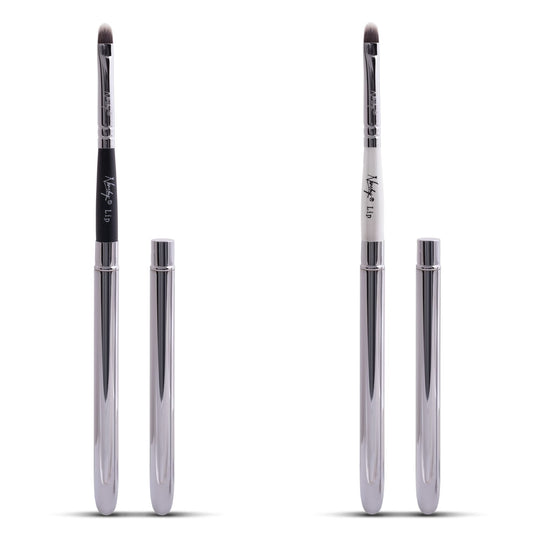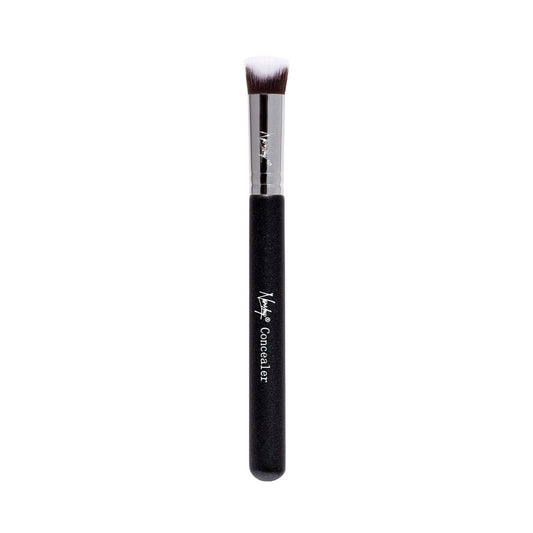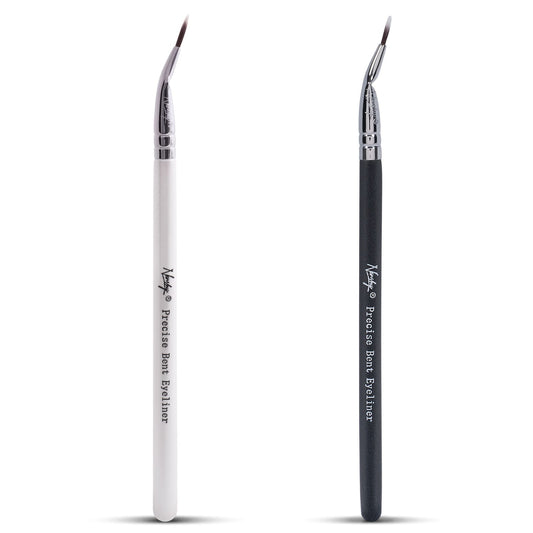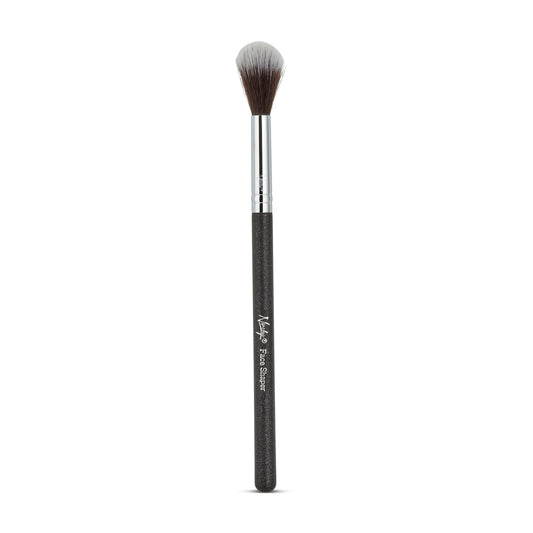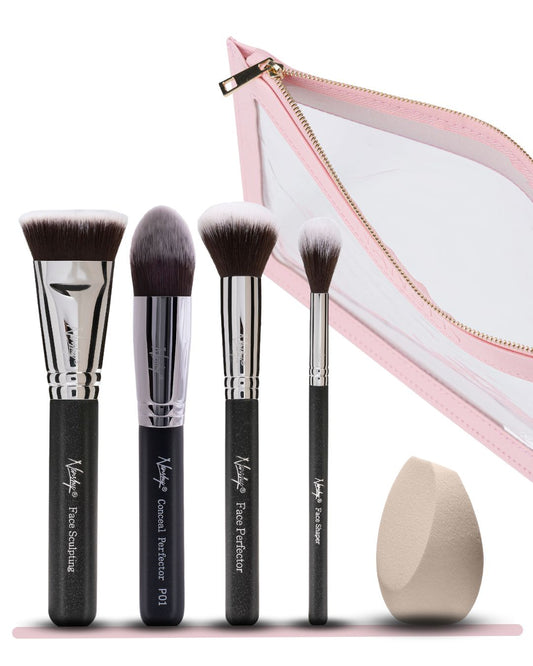Launch Your Dream Career: How to Become a Makeup Artist Today
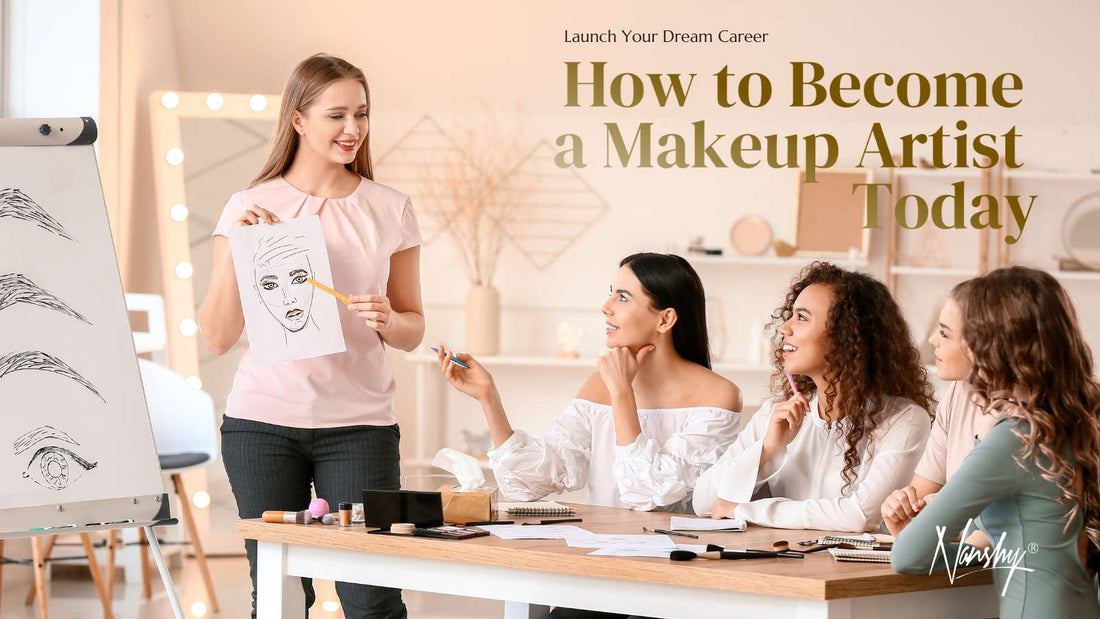
Embarking on a path to become a makeup artist unveils a world of creativity and transformation, blending visual skills, dexterity, and an eye for detail to enhance or alter appearances across diverse occasions and industries. This craft not only demands practice and experience but also opens doors to endless opportunities in fields such as fashion, bridal makeup, cinematic special effects, and beauty brands, laying the foundation for a fulfilling career in makeup artistry.
Understanding how to become a makeup artist today involves comprehending the basics of makeup artistry, assembling a professional makeup kit, and navigating the makeup industry, from editorial makeup for fashion shows to becoming a freelance or celebrity makeup artist. With dedication, anyone interested can dive into the journey of mastering makeup artistry, leading to potentially lucrative outcomes like an attractive makeup artist salary in the UK or the satisfaction of creating stunning bridal makeup looks.

Overview of What You'll Learn in This Article
Embarking on the journey to become a makeup artist opens up a world of creativity and professional opportunity. In this comprehensive guide, you will learn about:
- Assessing Your Passion and Commitment: Discover the essential traits and skills needed to thrive in the competitive field of makeup artistry. Understand how your passion, creativity, and perseverance can set you apart.
- Understanding the Makeup Industry: Gain insights into the scope and opportunities within the beauty and makeup industry, including the impact of technological advancements, sustainability, and social media.
- Education and Training: Explore various educational paths and training options, from formal degree programs to specialized courses and apprenticeships. Learn about important qualifications and ongoing education to enhance your career.
- Makeup Artistry Basics: Master the core skills and essential tools necessary for professional makeup application. Understand advanced techniques and hygiene practices critical for a successful career.
- Building a Professional Makeup Kit: Learn how to assemble a comprehensive and high-quality makeup kit, including essential products and tools that will help you deliver exceptional results to your clients.
- Gaining Practical Experience: Find practical steps to gain valuable hands-on experience, from collaborating on creative projects to seeking internships and apprenticeships.
- Creating a Portfolio and Networking: Understand how to build a strong and diverse portfolio that showcases your best work. Get tips on effective networking strategies to connect with industry professionals and potential clients.
- Launching Your Career: Discover key strategies to establish and grow your career as a makeup artist, including business management skills, marketing approaches, and continuous learning to stay competitive.
By the end of this article, you'll have a clear roadmap for starting and advancing your career as a makeup artist, equipped with practical advice, professional insights, and a supportive community of makeup enthusiasts.
– Pat McGrath
Click here to Tweet it on X.com
Evaluate Your Passion and Commitment.
Assessing Your Passion and Commitment
1. Understanding Essential Traits
- Passion, creativity, and perseverance are crucial for a successful career in makeup artistry. These traits fuel the drive to improve and innovate in a highly competitive field.

2. Artistic and Technical Skills
- Aspiring makeup artists must develop a blend of artistic flair and technical skills. This combination is essential for achieving professional and aesthetically pleasing results.
3. Communication and Customer Service
- Excellent communication and customer service skills are indispensable. These skills ensure effective client interactions and help in building a loyal customer base.
4. Handling Industry Challenges
- The makeup industry presents various challenges, such as high competition, maintaining hygiene standards, managing stress, and dealing with client feedback. Being prepared to handle these challenges is key to career longevity.
5. Rewards of Being a Makeup Artist
- The profession offers numerous rewards, including the joy of creative expression, boosting clients' confidence, and the opportunity to work with other talented professionals. It also allows for staying abreast of new trends and techniques in the industry.
6. Identifying Your Niche
- It’s important to identify your specific area of interest within the makeup industry, such as beauty therapy or skincare, and assess your current level of competence—whether you are a beginner or at an advanced stage.
By evaluating these aspects, individuals can better understand their readiness and enthusiasm for pursuing a career as a makeup artist, fostering a supportive community for makeup enthusiasts along the way.

Understanding the Makeup Industry
Scope and Opportunities in the Makeup Industry
1. Industry Growth and Financial Potential

The global cosmetics market, which generated approximately $72.37
billion in revenue in 2020, is projected to expand to $128.9
billion by 2028. In the UK alone, the beauty and health industry is expected to reach £26.7 billion. This growth is driven by various factors, including increased consumer spending and the rising importance of beauty and personal care.
2. Diverse Career Paths
Makeup artists can choose from a variety of specializations, such as fashion, bridal, cinematic, and special effects makeup. Each area offers unique opportunities and challenges, allowing professionals to tailor their careers to their skills and interests.

3. Technological Advancements and Trends
The adoption of e-commerce in the beauty industry has nearly quadrupled between 2015 and 2022, now accounting for over 20% of sales. Additionally, the use of AI and AR for hyper-personalisation is becoming increasingly significant, with 71% of consumers expecting personalised shopping experiences.
4. Sustainability and Innovation
The beauty industry is undergoing a significant shift as consumers become increasingly conscious of the environmental and ethical impact of their product choices. There's a growing demand for sustainable, cruelty-free, and ethically sourced makeup and tools.
Nanshy is a brand at the forefront of this positive change. We are committed to providing high-quality makeup tools that are 100% cruelty-free. This means we never test our products on animals, and we only source materials from ethical suppliers who share our values.
Why This Matters to Makeup Artists:
- Meeting Client Demand: As a makeup artist, your clients will likely be interested in the products you use. Choosing cruelty-free brands like Nanshy allows you to cater to this growing demand and showcase your commitment to ethical beauty.
- Aligning With Your Values: By supporting cruelty-free brands, you are making a conscious choice that reflects your values and contributes to a more sustainable and compassionate beauty industry.
5. Social Media Influence
Platforms like TikTok and Instagram are not just popular but are also becoming primary channels for beauty brands to engage with consumers and drive sales. This digital shift is creating new job opportunities for makeup artists skilled in creating content and engaging with audiences online.
6. Inclusion and Diversity
The demand for greater diversity in beauty products and advertising is shaping the industry. Consumers are increasingly expecting brands to feature a wide range of beauty standards and to cater to a diverse customer base.
Earning Potential for Makeup Artists in the UK (New Sub-section)
While passion and creativity are essential, it's also important to understand the financial aspects of pursuing a makeup artistry career. Here's a look at earning potential, especially for those just starting out:
- Starting Out: Entry-level makeup artists in the UK can expect to earn around £18,000 - £22,000 per year. Freelance rates for beginners typically range from £15 - £25 per hour.
- Building Your Business: As you gain experience, specialize in a niche (like bridal makeup or special effects), and build a strong client base, your earning potential can increase significantly.
- Reaching Higher Income Levels: Experienced and in-demand makeup artists can earn upwards of £30,000 - £50,000 per year or more, especially those who work with celebrities, in fashion, or on high-budget productions.
Side Hustle Opportunities:
While building your portfolio and client base, consider these side hustle ideas to generate income:
- Offer discounted makeup services to friends and family in exchange for testimonials and referrals.
- Volunteer your skills at local events, photoshoots, school dances, or community theater productions.
- Create and sell online makeup tutorials using platforms like YouTube or Skillshare.
Key Considerations for Aspiring Makeup Artists
1. Choosing a Niche
Deciding on a specific area of makeup artistry, such as bridal, celebrity, or theatrical makeup, can help in focusing efforts and building expertise.
2. Work Environment
Makeup artists often work in dynamic settings such as salons, studios, or on film sets, which can be both exciting and demanding. Understanding these environments is crucial for those looking to enter the field.
3. Career Advancement
Progress in a makeup artist career typically involves gaining experience, expanding a professional network, and continually updating skills and knowledge to stay abreast of industry trends.
This comprehensive view not only highlights the lucrative and diverse opportunities within the makeup industry but also underscores the importance of adaptability and continuous learning for long-term success.
Getting the Right Education and Training

Explore Formal Education and Training Options
1. Choose the Right Learning Path
Education and training to become a makeup artist can be pursued through various avenues, including universities, colleges, apprenticeships, and private training providers, as well as online platforms. It is essential to select a path that aligns with your career goals and learning style.
| Educational Path | Pros | Cons | Duration | Cost |
|---|---|---|---|---|
| University Degree (e.g., BA in Makeup for Media and Performance) |
|
|
3 years | High |
| BTEC/HND in Makeup Artistry |
|
|
1-2 years | Medium |
| NVQ in Makeup |
|
|
6-18 months | Low to Medium |
| Private Makeup Academy Courses |
|
|
1 week to 1 year | Medium to High |
| Online Certification |
|
|
3-12 months | Low to Medium |
2. Obtain Professional Qualifications
Gaining professional qualifications such as BTEC, City and Guilds, ITEC, VTCT, and MASA can significantly enhance your earning potential and credibility in the field.
3. Practical Training and Skill Development
Engaging in both formal training and self-taught practices is crucial. Completing courses that cover the fundamentals of lighting, cosmetics application, and understanding different skin types will equip you with the necessary skills. Continuous practice is essential to perfecting these skills.
Specialised Courses and Apprenticeships
1. Enroll in Specialist Courses
For those interested in specific areas of makeup artistry, like special effects or bridal makeup, enrolling in specialist courses can provide focused expertise and training.
2. Participate in Makeup Artist Apprenticeships
Apprenticeships are a great way to gain hands-on industry experience while learning. They can be particularly beneficial for immediate immersion in the practical aspects of makeup artistry.
Comprehensive Course Offerings in the United Kingdom:
| Institution | Nanshy Partnership |
|---|---|
| Arts University Bournemouth | Yes |
| Bedford College | Yes |
| BIMM University | No |
| Bradford College | No |
| BrushStroke | Yes |
| Buckinghamshire New University | No |
| Bury College | No |
| Cardiff and Vale College | No |
| Central Bedford | No |
| Cheshire College South & West | No |
| Chichester College Group (inc Brinsbury, Chichester, Crawley, Northbrook & Worthing Colleges) | No |
| City College in Plymouth | No |
| City College in Southampton (South Hampshire College Group) | Yes |
| City of Liverpool College University Centre | No |
| Creative Arts in London | No |
| Hertford Regional College | Yes |
| Hopwood Hall College in Manchester | No |
| Hugh Baird College | No |
| Hull College | No |
| Leicester College | No |
| Liverpool Hope University | No |
| Manchester College | No |
| Middlesbrough College | No |
| MidKent College (Inc Medway School of Arts) | No |
| Nescot College Surrey | No |
| Newcastle College University Centre | No |
| NewCollege Swindon | Yes |
| North Warwickshire and South Leicestershire College | No |
| Oaklands College | Yes |
| Orbital South Colleges University Centre | No |
| SGS (South Gloucestershire and Stroud College) | No |
| Solent University (Southampton) | No |
| Solent University in Southampton | No |
| South Essex | No |
| South Thames College Group (inc Carshalton, South Thames and Kingston College) | No |
| Teesside University, Middlesbrough | No |
| Truro & Penwith College | No |
| UCEN Manchester | No |
| University Centre Leeds, Leeds City College | No |
| University Centre Rotherham | No |
| University Centre Somerset - Bridgwater & Taunton College | Yes |
| University Centre South Essex | No |
| University Centre Weston | No |
| University College Birmingham | Yes |
| University for the Creative Arts | No |
| University of Bedfordshire | No |
| University of Bolton | No |
| University of Northampton | No |
| University of South Wales | No |
| University of the Arts London | Yes |
| University of the Highlands and Islands (UHI) | No |
| Vision West Nottingham College in Mansfield | No |
| West College Scotland | Yes |
| West Herts College | Yes |
| York College University Centre | No |
Licensing and Continuous Learning
1. Licensing Requirements
Depending on your location, obtaining the necessary licenses to practice as a professional makeup artist might be required. This often involves formal training or certification programs in cosmetology, esthetics, or theatrical makeup.
2. Ongoing Education
Continuously educating yourself through workshops, additional classes, and staying updated with industry trends is crucial for career advancement.
Application and Admission
1. Application Process
Most institutions require you to fill out an application form with personal details and information about your qualifications and goals. This is an initial step to enroll in the desired makeup artistry course.
2. Understanding Course Structures
Professional makeup courses typically include comprehensive topics ranging from hygiene and safety to advanced makeup techniques and client consultation. Knowing the course structure beforehand can help you prepare adequately for the challenges ahead.
Pursuing Relevant University Education
For those considering an advanced career in makeup artistry, pursuing relevant university degrees in areas like theatrical, media, and special effects makeup or related fields such as art and design can be beneficial. Universities across the UK offer specialised programs that cater to these interests.
Understanding Makeup Artistry Basics
Essential Skills and Tools
1. Core Skills
- Proficiency in makeup application is fundamental, requiring a blend of creative and technical skills to achieve professional results. Key abilities include excellent makeup skills, understanding color theory, and mastering different makeup techniques such as contouring and blending.
- Effective communication and interpersonal skills are crucial for understanding client needs and ensuring their satisfaction.
- Time management and organisational skills help in managing appointments and maintaining efficiency.
2. Toolkit Essentials

- A professional makeup artist’s toolkit should include a variety of makeup brushes, makeup sponges, tweezers, scissors, mirrors, and palettes. Sanitisers and makeup removers are also vital to maintain hygiene and prepare the skin for makeup application.
- Essential makeup products include foundations, concealers, powders, blushes, bronzers, highlighters, eyeshadows, eyeliners, mascaras, brow products, lipsticks, and false lashes.
Advanced Techniques and Hygiene
1. Makeup Application Techniques
- Skin Preparation: Proper cleansing, exfoliating, and moisturising are essential to creating a smooth base for makeup application.
- Color Correcting and Matching: Utilise color theory to correct skin discoloration and match skin tones with the appropriate foundation.
- Eyebrow Styling: Techniques for shaping, filling, and highlighting eyebrows to enhance facial features.
2. Hygiene Practices
- Maintain high standards of cleanliness by washing hands frequently, using clean tools, and regularly disinfecting workstations to prevent skin issues and allergies.
Understanding Skin and Creativity
1. Skin Types and Tone
- An in-depth understanding of different skin types is essential for selecting suitable products that enhance the client's natural features and ensure the longevity of the makeup.
- Knowledge of skin preparation techniques is crucial to ensuring that makeup remains intact and looks flawless throughout the day.
2. Creative Approaches
- Creativity is vital in makeup artistry, allowing the artist to experiment with various products and techniques to create unique and appealing looks tailored to individual preferences and occasions.
Building a Strong Foundation
1. Theoretical Knowledge
- A thorough grounding in makeup artistry is necessary, covering aspects like light, shading, contouring, facial features, and bone structure.
- Continuous education in the latest trends and techniques is important to stay relevant in the ever-evolving beauty industry.
2. Professional Development
- Building a portfolio to showcase work and attract potential clients and job opportunities is a critical step for career advancement.
- Adaptability to new trends and client demands ensures long-term success in the makeup industry.
By mastering these basics, aspiring makeup artists can lay a strong foundation for a successful career, fostering a supportive community that values creativity, professionalism, and continuous learning.
Building a Professional Makeup Kit
As a budding makeup artist, your makeup kit is your artistic toolbox. Don't feel pressured to buy everything at once. Start with the essentials and gradually expand your collection as you gain experience and clientele. Here's what to prioritize:
1. High-Quality Brushes for Every Look
A versatile brush set is the foundation of any makeup kit. The Nanshy Masterful Collection Brush Set is an excellent choice for both beginners and seasoned professionals. It includes 12 professional-grade brushes crafted with soft, synthetic fibers that work beautifully with liquid, cream, and powder formulas.

Key Features:
- Super-Soft, Cruelty-Free Fibers: Gentle on the skin, suitable for even the most sensitive skin types, and perfect for blending a flawless base.
- Versatile Selection: This set includes brushes for foundation, concealer, powder, blush, bronzer, eyeshadow, eyebrows, and more, allowing you to create a wide range of makeup looks.
- Professional Quality, Beginner-Friendly: These brushes are designed to deliver professional results, yet they are easy to use, making them ideal for those just starting their makeup artistry journey.
Tips for Beginners:
If you're just starting out, you don't need to buy every brush individually. A well-rounded set like the Nanshy Masterful Collection will cover all your basic needs.
Consider investing in a brush cleaner and drying rack to keep your brushes in top condition. Proper care will extend their lifespan and ensure hygienic application.
2. Essential Makeup Products
Foundation: Offer a variety of shades and formulations (liquid, cream, or powder).
Concealer: Include a range of shades to cover blemishes and brighten under the eyes.
Powder: Choose a translucent powder for setting makeup and a few shades for light contouring.
Blush: Include a few shades to complement different skin tones.
Eyeshadow: Start with a neutral palette with both matte and shimmer shades.
Eyeliner: Black and brown are essential, and you can experiment with other colors.
Mascara: Have both black and brown mascara options.
Lip Products: Include a variety of lipsticks, glosses, and lip liners in neutral and bold shades.
Tip for Beginners:
As you're starting out, focus on building a collection of high-quality, yet affordable makeup essentials. These products will last longer and make learning the ropes much easier. As you gain more experience and clients, you can invest in more premium brands.
3. Skin Preparation Essentials
Makeup Remover: Choose a gentle option for sensitive skin.
Cleanser: Have a gentle cleanser on hand for all skin types.
Toner: Opt for a hydrating toner.
Moisturizer: Offer a variety of moisturizers for different skin types (e.g., oily, dry, or combination).
Primer: Include a mattifying primer for oily skin and a hydrating primer for dry skin.
4. Hygiene Must-Haves
Hand Sanitizer: Essential for use before every client.
Disinfectant Spray or Wipes: Use to clean your workstation and tools.
Brush Cleaner: Keep those brushes spotless!
Disposable Applicators: Use these for applying lipstick or gloss to ensure hygiene.
Palette Knife: Use this to scrape off any product you'll need to avoid contaminating the entire product.
5. Additional Tools
Makeup Sponges: Perfect for blending foundation and concealer.
Tweezers: Essential for brow grooming.
Eyelash Curler: Makes a big difference in opening up the eyes.
Sharpeners: Keep those eyeliner and lip pencils sharp!
Mirror: A large, well-lit mirror is a must.
6. Portable Storage and Lighting
Makeup Bag: Invest in a sturdy and spacious makeup bag or case to keep your kit organized and portable.
Lighting: A portable ring light is essential for ensuring good lighting during makeup application, especially when working in different locations.
By gradually assembling a comprehensive and well-organized makeup kit, you'll be well-prepared for any client or situation that comes your way. Remember, your kit will evolve as your skills grow, so don't be afraid to experiment and find what works best for you!
Gaining Practical Experience
Practical Steps to Gain Experience
1. Collaborative Projects
Engage in collaborative projects with photographers and models to create a diverse portfolio. This hands-on experience is invaluable for understanding different aesthetics and client needs.
2. Community Services
Offer makeup services to friends, family, and local community events. This not only builds your skillset but also helps you gain quick practical experience.
3. Social Media and Marketing
Utilize social media platforms to showcase your work. Create digital posters and share them online to reach a broader audience and attract potential clients.
4. Internships
Seek internships with established makeup artists. This exposure is crucial for learning industry-specific skills and gaining professional insight.
5. Volunteering
Volunteer for backstage makeup at local theaters or community plays. Such experiences are great for practicing different styles and understanding the fast-paced nature of makeup artistry.
6. Apprenticeships and Workshops
Consider apprenticeships and participating in workshops to learn from seasoned professionals. These opportunities often provide structured learning environments and networking possibilities.
7. Continuous Practice and Feedback
Practice regularly and be open to feedback. This iterative process helps refine skills and adapt to various makeup techniques and client preferences.
Table: Opportunities for Gaining Practical Experience
|
Opportunity Type |
Description |
Benefits |
|---|---|---|
|
Collaborative Projects |
Working with photographers and models to build a portfolio. |
Enhances skills, diversifies experience. |
|
Community Services |
Providing free services to friends and local events. |
Builds practical skills, fosters goodwill. |
|
Social Media Marketing |
Using platforms like Instagram to showcase work. |
Increases visibility, attracts clients. |
|
Internships |
Interning with professional makeup artists. |
Provides industry insights, enhances skills. |
|
Volunteering |
Helping at local theater makeup departments. |
Offers real-world experience, builds network. |
|
Apprenticeships |
Formal programs with structured training and pay. |
Offers comprehensive learning, earns while learning. |
|
Continuous Practice |
Regular practice and accepting feedback. |
Improves precision, adapts to client needs. |
By engaging in these practical experiences, aspiring makeup artists can build a robust portfolio, develop a network, and enhance their skills, setting a solid foundation for a successful career in makeup artistry.
Creating a Portfolio and Networking
Building a Strong Portfolio
1. Showcase Your Best Work
A makeup artist's portfolio is essentially their visual resume, highlighting their best and most diverse work. It should include high-quality images of various styles, like natural, editorial, and bridal makeup, demonstrating versatility and skill.
2. Use Professional-Quality Photos
Ensure that the photos are professional, with models displaying well-groomed hair and eyes open, to enhance the visual appeal and professionalism of your portfolio.
3. Regular Updates and Customization
Keep your portfolio updated with your latest work and customize it for different clients by organizing it into sections like 'Editorial' and 'Red Carpet' to make navigation easier and more targeted.
Effective Networking Strategies
1. Engage in Industry Events
Attending industry events and joining organizations like the Make-up Artist and Hair Stylist Guild (MUAHS) can provide valuable networking opportunities, access to educational resources, and exposure to potential clients and collaborators.
2. Leverage Social Media
Utilize platforms like Instagram and Facebook to showcase your work, engage with other professionals, and direct traffic to your portfolio website. This increases your visibility and helps build connections within the industry.
3. Professional Online Presence
Create a professional website with sections for your portfolio, about me, and contact information. Ensure the site is easy to navigate and includes links to your social media and any relevant professional networks.
Table: Key Components of a Makeup Artist's Portfolio
|
Component |
Description |
Importance |
|---|---|---|
|
High-Quality Images |
Professional photos that highlight the artist’s skills. |
Essential for showcasing work quality. |
|
Diversity of Styles |
Examples of different makeup styles and techniques. |
Demonstrates versatility and skill range. |
|
Regular Updates |
Keeping the portfolio current with recent works. |
Shows ongoing commitment and improvement. |
|
Easy Navigation |
Well-organized sections tailored to different audiences. |
Enhances the user experience and professionalism. |
By meticulously building a portfolio and actively networking, makeup artists can significantly enhance their career prospects, establish a supportive community, and ensure a steady flow of opportunities and job security in the competitive makeup industry.
Launching Your Career as a Makeup Artist
Establish Your Professional Identity
1. Choose Your Niche
Deciding on a specialization such as film, theatrical, prosthetic, or bridal makeup can help tailor your skills and marketing efforts to a specific audience, enhancing your expertise and appeal in that sector.
2. Develop a Unique Style
Creating a signature style or look can significantly distinguish you from competitors and make your work recognizable, potentially leading to a unique brand identity.
Set Up Your Business Fundamentals
1. Business Management Skills
Understanding the basics of business management, including marketing and finance, is crucial for running a successful freelance makeup artist business.
2. Obtain Necessary Insurance
Securing appropriate insurance protects against potential accidents and mishaps, providing peace of mind and professionalism in your practice.
Build and Maintain a Professional Network
1. Collaborate with Industry Professionals
Building relationships with photographers, stylists, and other makeup artists can open up opportunities for referrals and collaborative projects, enhancing your visibility and credibility.
2. Engage on Social Media
Creating a professional website and actively engaging on platforms like Instagram and Facebook help showcase your work and connec with both clients and peers in the industry.
Stay Current and Competitive
1. Continuous Learning
Stay updated on the latest trends, techniques, and products in the makeup industry. This not only improves your skill set but also keeps your services in demand.
2. Seek Feedback and Improve
Actively seeking feedback from clients and peers and being open to learning from it can greatly enhance your skills and service quality.
Pricing and Marketing Strategies
1. Effective Pricing
Consider factors like location, experience, and the specific services offered when setting your prices. Offering packages can also attract more clients by providing bundled services at a discounted rate.
2. Market Yourself
Utilize social media for marketing. Share useful content, tips, and engage with your audience to build a supportive community around your brand.
Table: Key Strategies for Launching Your Makeup Artist Career
|
Strategy Category |
Key Actions |
Purpose |
|---|---|---|
|
Professional Development |
Choose a niche, develop a unique style |
Establishes brand identity and expertise |
|
Business Setup |
Learn business skills, obtain insurance |
Ensures smooth business operations |
|
Networking |
Collaborate with professionals, engage on social media |
Expands opportunities and professional network |
|
Skill Enhancement |
Stay updated, seek feedback |
Maintains competitiveness and skill level |
|
Marketing and Pricing |
Set strategic prices, use social media |
Attracts and retains clients |
By implementing these strategies, you can effectively launch and sustain a successful career in makeup artistry, fostering a supportive community that values professionalism and continuous growth.
Conclusion
Embarking on a journey to become a makeup artist opens up a world of opportunity for creative expression and professional growth. Throughout this exploration, we've uncovered the essential steps, from evaluating your passion and commitment, understanding the vast landscape of the makeup industry, to assembling your professional makeup kit and building a strong portfolio. These pivotal steps not only set the foundation for a thriving career but also contribute to a supportive community that celebrates creativity and innovation in the makeup artistry field. Remember, the journey of mastering makeup artistry is enriched by continuous learning and embracing the diversity of beauty standards, ensuring that you stay at the forefront of industry trends and techniques.
As you equip yourself with knowledge and skills, the importance of high-quality tools cannot be understated. Start building your brush kit with Nanshy today! A well-curated makeup kit is your ally in translating artistic visions into reality, elevating your craft to new heights. In fostering a supportive community, let this be a reminder that your journey contributes to a broader narrative of empowering individuals through beauty, instilling confidence, and driving innovation in the makeup industry. Engage, inspire, and continually evolve—as the art of makeup is not just about transformation but also about affirmation and expression.
FAQs
Q: What are the initial steps to pursue a career in makeup artistry?
A: To kick off a career as a makeup artist, you can obtain a certificate in cosmetology, which can be pursued online from the comfort of your home and may take up to a year to complete. Alternatively, you might consider working towards a Cosmetology Associate Degree, which typically requires two years or more to finish.
Q: How should I present myself when I'm a makeup artist?
A: When introducing yourself as a makeup artist, share your professional background and experience, such as having 20 years in the industry. Highlight your dedication to clients on their wedding day and other special events, and mention traits that your clients value in you, like being calm, professional, and passionate about your work.
Q: What path can lead to becoming a makeup artist?
A: To start your journey as a makeup artist, you might begin by offering makeup services to individuals as an artist or personal stylist. For those aiming to enter the film, television, theatre, or commercial advertising industries, specialized training and experience are crucial prerequisites before embarking on a professional career.
Q: What should a beginner makeup artist know and possess?
A: Beginners in makeup artistry should have design skills and knowledge, the ability to work well with their hands, and an artistic and creative flair. It's also important to collaborate effectively with others, be meticulous and attentive to detail, and be adaptable to change. Strong verbal communication skills and the ability to take initiative are also essential qualities for a makeup artist.
References
https://brushstroke.co.uk/how-to-become-a-makeup-artist/
https://www.masterclass.com/articles/how-to-become-a-makeup-artist
https://beauty-school.co.uk/how-to-become-a-makeup-artist/
https://www.qcmakeupacademy.com/2017/08/become-freelance-makeup-artist-step-step-guide/
https://uk.indeed.com/career-advice/finding-a-job/how-to-become-a-make-up-artist
https://www.format.com/online-portfolio-website/makeup-artist/guide
https://nationalcareers.service.gov.uk/job-profiles/make-up-artist
https://www.theinstituteofmakeupartistry.com/blog-monetising-hobby
https://www.finalchecksacademy.com/how-to-start-a-beauty-and-makeup-career/
https://www.linkedin.com/advice/3/what-does-makeup-artist-do-skills-graphic-design-oyeqe
https://www.qlasses.com/blog/makeup-as-a-career
https://www.quora.com/How-did-you-start-your-career-as-a-makeup-artist-and-where-did-you-pursue-makeup-courses
https://www.mckinsey.com/industries/retail/our-insights/the-beauty-market-in-2023-a-special-state-of-fashion-report
https://explodingtopics.com/blog/beauty-trends
https://aaftonline.com/blog/makeup-artist-skills/
https://www.lbta.co.uk/how-to-become-a-make-up-artist/
https://beauty-school.co.uk/which-makeup-artistry-course-to-choose-to-become-an-accredited-makeup-artist/
https://www.thebeautyacademy.org/product/professional-makeup-artist-course/
https://delamaracademy.co.uk/
https://glaucarossi.com/
https://www.reed.co.uk/courses/makeup-artist
https://socalbarberbeauty.com/how-to-become-a-professional-makeup-artist/
https://www.qcmakeupacademy.com/2022/04/the-basic-skills-every-makeup-artist-should-know/
https://online.professionalbeautydirect.co.uk/blog/how-to-become-a-makeup-artist
https://uk.indeed.com/career-advice/cvs-cover-letters/makeup-artist-skills
https://www.beautyforalluk.com/top-skills-needed-to-be-a-professional-makeup-artist/
https://www.cmucollege.com/blog/skills-every-professional-makeup-artist-needs-cmu-college/
https://mjgorgeous.com/how-to-gain-experience-as-a-freelancer-makeup-artist/
https://theposhlook.co.uk/2019/12/16/building-your-makeup-portfolio-as-a-freelancer/
https://www.format.com/magazine/galleries/art/build-makeup-artist-portfolio-inspiration
